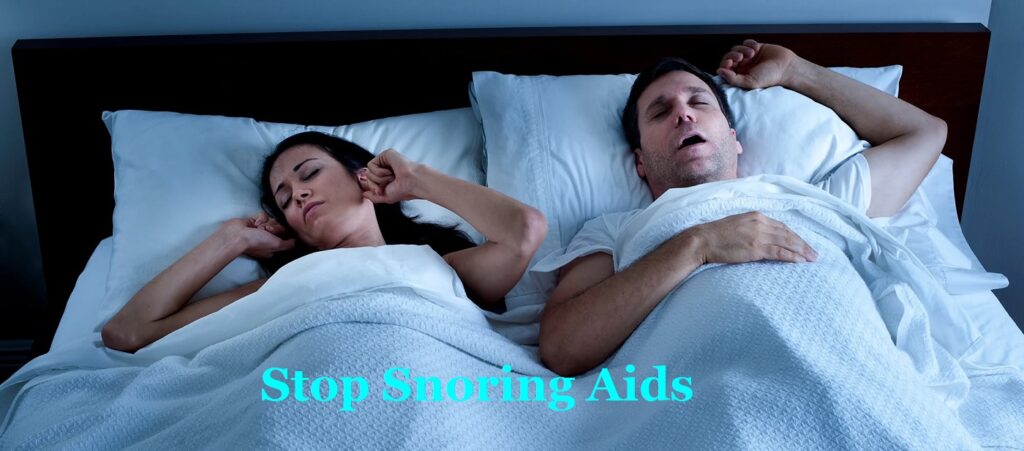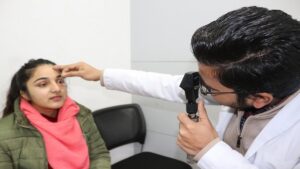
If you snore, you are aware that few things are as annoying to you and your sleeping companion as snoring. You can still discover remedies and anti-snoring device choices for your challenges, whether you snore due to sleep apnea, sleep disorder problems, sinus issues, or your sleeping posture.
Stop Snoring Aids
The market is flooded with anti-snoring products, which is fortunate (or unfortunate) given how common it is. Therefore, if you have sleep apnea or believe you may have it, you should consult your doctor to determine the best anti-snoring solution and course of action for you.
Continuous Positive Airway Pressure Devices
The majority of these products are ineffective as a long-term cure for moderate to severe sleep apnea. Although continuous positive airway pressure (CPAP) devices are currently the gold standard for treating sleep apnea, your doctor may be able to suggest alternate snoring remedies if you can’t tolerate one.
However, if you just snore sometimes and don’t have any significant underlying medical issues, one of these eight solutions — most of which are reasonably priced — can help you Stop Snoring Aids (and consequently reduce complaints from your sleep-deprived bed partner about being tortured by the snoring sound).
1. Anti-Snoring Aid Snore Pin – A Small Nasal Device That Enters Your Nostrils:
This nasal dilator is a little anti-snoring device that resembles two baskets that are hooked together. Each of the “baskets” fits into a nostril and is secured there by a hook that wraps over the cartilage dividing the nostrils’ nasal airway apertures.
The Snore pin is designed to widen your nostrils and ease breathing as you sleep, which should lessen any snoring. The Snore pin’s fit has caused some issues for some Amazon customers, but many agree that if your snoring problem is severe, it’s worth the $25 to give it a shot.
2. Snoring Relief Band From Philips Smart Sleep – A Chest Strap To Aid in Peaceful Slumber:
Another tool for back snorers is the Philips Smart Sleep Snoring Relief Band, which utilizes a positioning monitor to detect when you roll onto your back. The band, which is worn around your chest and works like a heart-rate monitor, vibrates to remind you to turn over on your side. The band contains a smart-learning algorithm that modifies the vibration’s frequency and strength as it learns what causes you to respond in your sleep.
3. Smart Nora’s Pillow Insert – An inflatable Snore-Reduction Tool in The Form of A Comforting Pillow:
You place Smart Nora, a pillow, inside your pillowcase, below the pillow. The snoring gadget watches you as you sleep and, when it hears snoring sounds, inflates the insert to gently move you to a different sleeping position.
Smart Nora may not be effective for you if you snore extremely softly since it detects snoring noises. Although the website suggests that can work for side sleepers as well, it may possibly work better for individuals who sleep on their backs.
4. Therapy Using The Zzoma Position – An Alternative Anti-Snoring Device For Those Who Sleep on Their Backs:
The Zzoma Positional Therapy device may help you stop snoring if you’re one of those chronic snorers who only snore while you sleep on your back (or snores harder when you do). This positional device keeps you from turning over throughout the night, which reduces snoring.
As of right now, the Zzoma gadget is only available via prescription, but if you have sleep apnea and are having trouble using a CPAP machine to Stop Snoring Aids, talk to your doctor about it.
5. Dynamic Pillow – A Pillow With Built-In Snoring Prevention:
Another snore-reducing cushion device is the Motion Pillow, which analyses snoring noises to identify your ideal head posture. Your snores are recorded and analyzed by the Solution Box, which then changes the position of your head by inflating an airbag within the pillow when it determines that it is not in the best position.
The difference between Smart Nora and Motion Pillow is that Smart Nora integrates into your existing pillow, whereas Motion Pillow is a standalone device.
6. Wedge Pillow by Sleep Number – A Reasonable And Easy Fix:
Try using a straightforward wedge cushion in its place if you don’t want to spend $359 on Smart Nora. By elevating your head at night, you can prevent your throat tissue from relaxing too much and keep your tongue from lolling back into your mouth, which is one of the causes of obstructive sleep apnea, which helps to keep your airway open and reduce or even eliminate snoring, which is something that many people who snore while sleeping on their back find.
7. Portable Humidifier JISULIFE – For Those Who Snore Due To The Dry Air:
When something like sleep apnea is the source of snoring, a humidifier won’t be able to stop it. A humidifier, however, may offer some help if your snoring is brought on by dry air, dry sinuses, a cold, or allergies. If you’re unsure whether it will work, start small with a portable humidifier that is affordable, much of the $18 JISULIFE. If it doesn’t reduce your snoring, it could still be beneficial in other ways.
8. Special Pillows Fit To Your Need So That You Can Sleep Peacefully:
An effective non-invasive snoring treatment is a well-made anti-snoring pillow. Different types of cushion patterns can reduce snoring in various ways, such as:
Stop Snoring Aids – One of the best strategies to stop snoring is to sleep on your side. Pillows are made specifically to support it because of this. If you usually sleep on your back owing to the difficulties in changing positions, rigged pillows may be the solution.
CPAP pillows can fit the mask and hose of a CPAP device to alleviate pressure on your face and lower the chance of accidental removal or misalignment, which could result in air leakage. These cuts have been made with ergonomics in mind. To relieve airway tightness, adjust the posture of your head and neck using cushions. Cervical realignment can reduce snoring and improve the quality of sleep. We appreciate the bamboo sandwich cushion from UTTU.
In Relation To Our Recommendation, We Suggest…
9. Wedge Pillows Filled With Foam:
If you usually sleep on your back, these kinds of pillows are the best option for you. Because the tissue lining your airway is compressed by the weight of your back while you sleep on your back, you are more likely to snore. Most of Snore Lab’s customers have discovered that raising your head just a little bit, like you could with a wedge cushion, has significant advantages.
10. Tabs For The Mouthwash by SomniFix:
With this quick, inexpensive, non-invasive technique, your lips are gently pulled together to teach you to breathe via your nose rather than your mouth, which is loud and hazardous.
One of the most frequent causes of snoring is mouth breathing because it narrows the airway by drawing the tongue back and constricting the throat, which decreases space and raises resistance. It benefits you because it’s one of the best-snoring treatments out there. SomniFix encourages nasal breathing, which not only lessens snoring but also improves health in other ways, such as by promoting better sleep and a decreased risk of allergies and infections.
Employ A Neti Pot:
Everyone who snores or has persistent congestion should get a neti pot since it’s a fantastic, natural way to clear your blocked nasal passages. You can soothe the irritated tissue by using a neti pot to relieve the congestion in your nose. Using a neti pot to clear your nasal passages may help you get rid of extra mucus, get rid of allergens and irritants, and get relief from a stuffy nose.
If they often experience sinus issues, have pollen or dust allergies, get the winter flu, snore in very polluted areas, or experience any of these ailments, we strongly advised them to try it. Snoring is involuntary, but there are also many disadvantages of snoring. With that being said, our article is now finished as we have suggested to you the best aids for snoring that most people tend to use.




